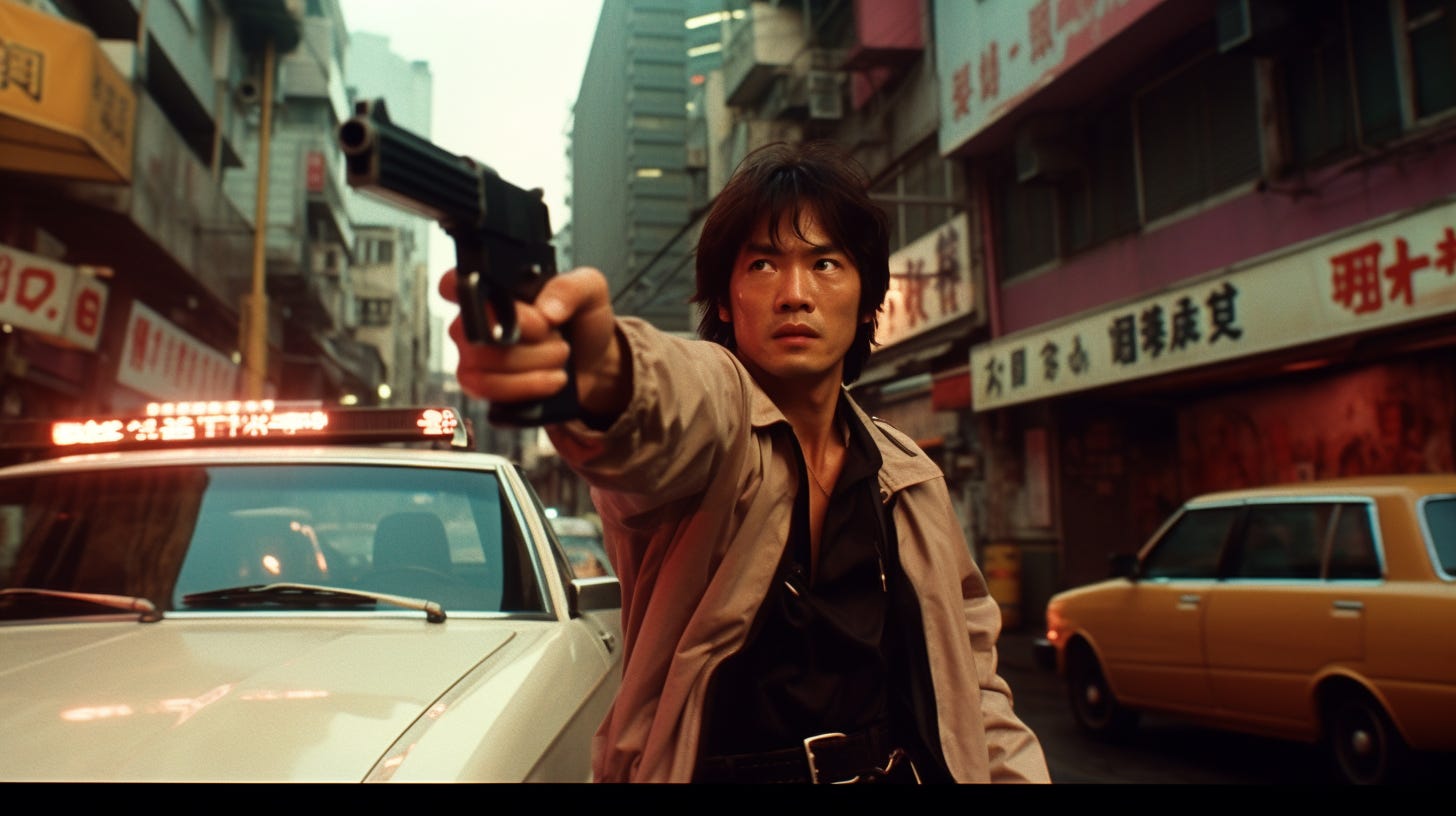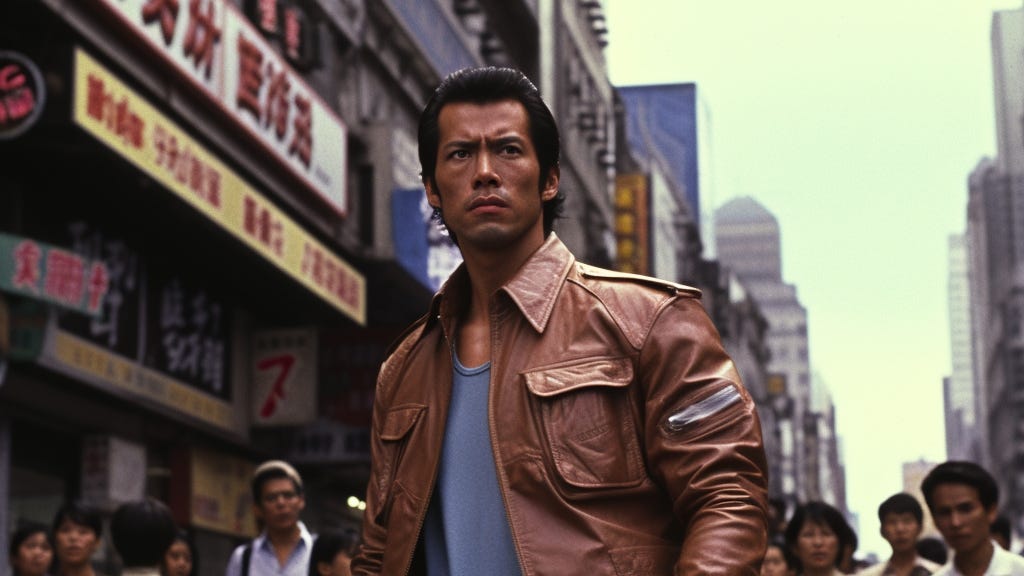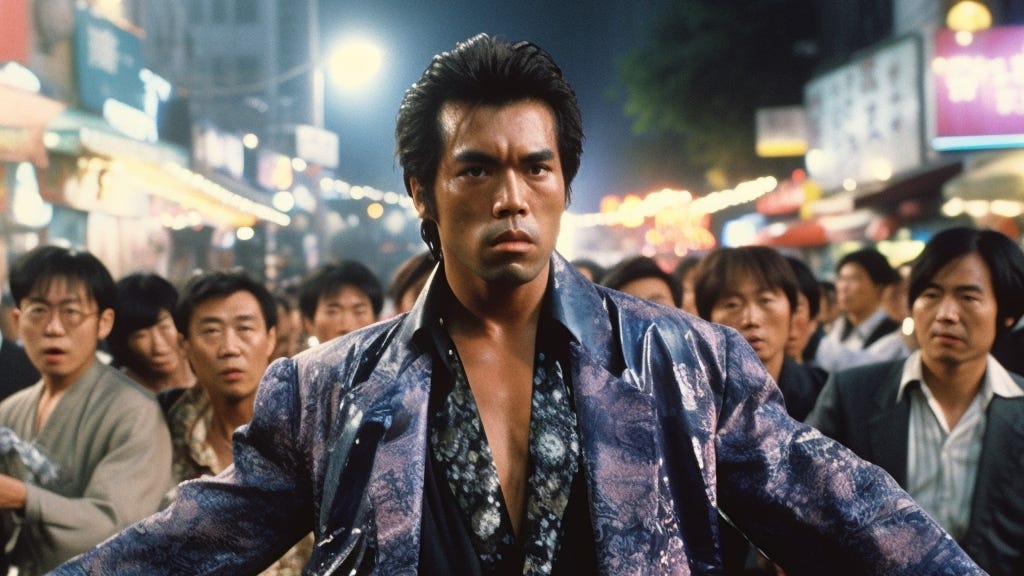Andy Wu’s Strong Force (1981) is perhaps less interesting as a film and more interesting for it's place as a historical curio.
Wu was primarily a director of wuxia films in Hong Kong when he brought Strong Force to the screen. His prior works such as Heroes of the Fire (1978) were the sort of picture one would expect from a journeyman director such as Wu. Solid but uninspiring cinema that did well enough at the box office to ensure he was never without work.
Kenny Ngo was a wealthy investor cum producer that was looking to cash in on the Scorsese style crime dramas coming out of America during the 1970s. The gritty realism of New Hollywood also appealed to him.
Seeing a potential opening in the market, Ngo approached Wu with the idea of a film that was more grounded in the streets of Hong Kong.
The resulting film, made on a tight budget and with a relatively unknown cast, serves as something of a missing link between wuxia films which were the majority of Hong Kong action cinema at the time and the gun fu from John Woo.
With A Better Tomorrow (1986), John Woo gave birth to a style of Hong Kong action cinema that would be the dominant form by the 1990s.
It's interesting to reflect on what John Woo did with A Better Tomorrow. Taking the highly choreographed nature of wuxia films and turning them into gun play action films. Gone were the black and white duality of clear heroes and villains.
Instead Woo’s focus is on street level cops and triad members. He worked in shades of grey. And martial arts were secondary to the gun play.
In contrast, Wu had similar instincts but on a different vector. Strong Force is in many ways wuxia with guns. The morality of the tale is black and white, and skews towards the traditional wuxia of martial arts champions facing of against countless hordes.
The gangsters are there, as per Ngo’s wishes. It definitely takes a street level view. But it is hardly revolutionary.
And while there may not be much to recommend it as a piece of cinema (Derick Cheung's turn as the villainous triad boss aside), it is interesting for it's place as the connective tissue between wuxia and gun fu.
It's hard to imagine that Woo was thinking of Strong Force when he made A Better Tomorrow. That different pathway to the result is just too far apart. But one does wonder if Strong Force presents a path not taken in Hong Kong cinema.
Strong Force returned a middling box office and critical reviews from the time were apathetic. Ngo and Wu didn't work together again. The world has to wait another 5 years to kick start the gun fu revolution and make stars of directors like John Woo, Ringo Lam and Tsui Hark.
Which is fine. Strong Force isn't much of a film. It lacks the emotional get of both the wuxia films before it and the gun fu movies that would come after it. Cheung's aforementioned performance aside, the acting is forgettable, matching most performances in most action films coming out of America in the 1980s. No one became a star on the back of this film and based on the effort put in, they probably didn't expect to.
There is some direction that is worth paying attention to from time to time but nothing that really wakes one up.
That poster though. That's fire.
Strong Force is difficult to find these days. A forgotten curio was never going to survive much of the just 4 decades.
Compounding the problem is that China took a rather dim view of the film in the wake of Tiananmen Square in 1989. Crowd scenes in two sections of the film were deemed to be subversive.
While China could not out and out censure a film from Hong Kong (particularly while the British had ownership), by all accounts they did wage a campaign to suppress the film as best they could.
No one seemed to mind so much given that no one had gone out of their way to watch the film. And so it became one of those movies that didn't get transferred to media such as DVD when the time came.
Copies one can “procure” online then are transfers of transfers of transfers. VHS to Video CD to mp4.
Image credit: Sean Mackaay X Midjourney









